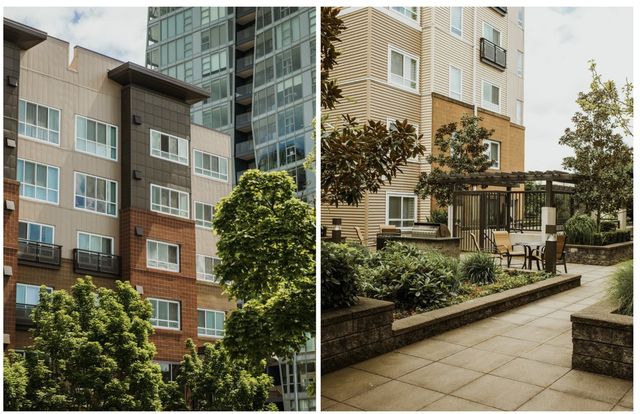
Ben Lindbloom for The Wall Street Journal
coronaAs the coronavirus pandemic closed schools and businesses last spring, Bryan Conzone, an otherwise healthy tech entrepreneur, caught a case of wanderlust.
Mr. Conzone, 38, who owns a data analytics-software company, was stuck at home with his family in Las Vegas. His wife, Jenn Conzone, 41, a registered nurse, quit her job to take care of the couple’s son, then 5 years old, and infant daughter. The lease on the family’s three-bedroom townhouse was up in June, and Mr. Conzone—who has run his company, TRFK, remotely for years—was ready to hit the road.
“I was like, ‘OK, you’re not working; we’ve been talking about moving to Texas; let’s go check out Dallas and Austin,’” Mr. Conzone recalled telling his wife. “How can we explore the cities for a month and really get a feel for which one we want to be in?”
That question marked the beginning of the Conzone family’s yearlong, seven-city, eight-stop odyssey across the Southwest and the Pacific Northwest—an upscale variation on “Nomadland,” with stays in furnished luxury apartments instead of trailer parks. Using Landing, a short-term-rental website, the Conzones hopscotched across Texas, California, Oregon, Washington and Utah, staying for four to six weeks in each city before moving on to the next, toting duffel bags of clothing, games and home-schooling supplies.

Ben Lindbloom for The Wall Street Journal
After a year of working and schooling remotely, many people are curious about trying out new cities, but they aren’t ready for the hassles of a full-blown relocation. Others, who left urban areas during the pandemic, may be ready to return but reluctant to commit to long-term leases. In many cities, housing inventory is in such low supply that even those seeking to buy may need somewhere to stay short-term.
In response to that range of demands, real-estate developers and internet real-estate startups are offering user-friendly, no-strings rental programs: turnkey apartments that can be leased for a few months and vacated at a moment’s notice; luxury one-bedrooms with flexible lease terms and all-inclusive services; multimillion-dollar condominiums that can be rented with an option to buy at a significant discount.
Landing, which has a network of apartments in 80 cities, works with property managers to source units in upscale buildings, which it then kits out with custom furnishings. Members, who pay a $199 annual fee and pass a credit check, find high-thread-count sheets on the beds, snacks in the fridge and a starter pack of detergent pods in the laundry room. The monthly rental fee is 30% to 40% above market rate, depending on demand, location and length of stay. Rates range from $1,200 to $5,000, plus a monthly utilities fee of $250 to $295.

Ben Lindbloom for The Wall Street Journal
“I want renting an apartment to be as easy as ordering food,” said Landing CEO Bill Smith, who founded the company in 2019. “Whenever they’re ready to move on to the next city, they only have to take their belongings.”
Although Mr. Smith declined to say how many members are enrolled, he said Landing has seen its greatest growth in Sunbelt states such as Texas and Florida, both in terms of membership and in demand for apartments.
Last June, the Conzones put their furniture and other belongings in a Las Vegas storage unit and moved to Dallas, their first trial city. They booked a one-bedroom apartment through Landing at the Crosby in Deep Ellum, a walkable downtown area, paying $2,100 plus the utility fee. Ms. Conzone home-schooled their son, Max, now 6, and cared for Mia, now 18 months old, while Mr. Conzone worked remotely.
Then it was onto Austin and a month at Griffis at the Domain, a 300-acre mixed-use development. In August, the Conzones went back to Dallas with the goal of getting to know a different part of the city, taking a monthlong, $2,600 lease on an apartment at Uptown at Cole Park. Things snowballed from there.

Ben Lindbloom for The Wall Street Journal
“We never planned on doing more than Texas, but we ended up liking it so much it kind of became, ‘Why don’t we continue to check out additional cities?’ ” Mr. Conzone said.
As fall turned to winter, the family traveled to California, staying for a month at Avalon Irvine in Orange County, followed by a stint in Milpitas at Amalfi Apartments. Then it was onto monthlong residencies in Portland, Ore., and Bellevue, Wash. “We thought, ‘Well, why don’t we finish the West Coast?’ ” Mr. Conzone said.
By May, the family was living in a $2,670 one-bedroom apartment at Avalon Meydenbauer in downtown Bellevue and scoping out apartments in Salt Lake City, where they will spend most of June. Next up: Denver, Chicago, New York and Boston.

Ben Lindbloom for The Wall Street Journal
The Conzones have paid between $1,850 and $3,300 a month for the one-bedrooms, plus the monthly utilities fees. Mr. Conzone conducts his business from local co-working spaces. The family’s mail is sent to a private postal mailbox, where it can be forwarded to their current location, or opened, scanned and emailed using the platform anytimemailbox.com.
Over the winter, they began traveling with a small U-Haul for bulky items. Occasionally, they return to their Las Vegas storage unit to swap out seasonal clothing. “It has completely changed our lifestyle,” Mr. Conzone said. “When we go back to Vegas, we’re just going to sell everything in storage.”
Although the Conzone family’s footloose new lifestyle may not be for everyone, their reluctance to settle down or to commit to a long-term lease is embedded in the current rental-market zeitgeist.
“We get it—things are weird right now,” declares the website for Related Plus, a pilot program that offers an all-inclusive leasing subscription in three Chicago luxury towers. The program was launched in May by Related Cos., a developer with nearly 50 residential buildings nationwide.
Rent, utilities, internet and other costs are bundled into one monthly fee, eliminating hookup and disconnection hassles. Renters can terminate their lease early or extend it on a month-to-month basis. They can also change apartments during their lease. The service comes at a slight premium: At One Bennett Park, a Robert A.M. Stern Architects-designed skyscraper, a one-bedroom that would ordinarily rent for $4,380 costs $4,606.
“The luxury renter’s priorities have shifted. We wanted to create something that gave them comfort and ease,” said Haley Rafferty, regional manager of Related Management Co. She said the program in Chicago could potentially be adapted for Related buildings across the U.S.

Dorothy Hong for The Wall Street Journal
After a year at home with his three young children in a Brooklyn townhouse, Kyle Martino, a retired professional soccer player and entrepreneur, embarked on what he described as “a life audit.”
In April, Mr. Martino, 40, who is divorced, moved into a two-bedroom apartment in One Manhattan Square, an 80-story condominium tower on lower Manhattan’s waterfront, where prices for two-bedroom units start at just under $2 million.
But Mr. Martino didn’t buy the apartment. He is leasing it through One Manhattan’s rent-to-own program, which Extell Development Co. has launched to lure leery buyers. Rents for two-bedrooms like Mr. Martino’s—who didn’t want to disclose what he is paying—start at $7,250 a month. If he buys the apartment before his annual lease expires, the full cost of his annual rent will be credited toward the purchase price.
“I thought, ‘Wow, that sounds fun. I don’t have to make this big call in terms of transitioning from owning one place to owning another,’ ” Mr. Martino said. “That was the extra level of flexibility I was looking for.”
About 55 renters are taking advantage of the test-drive program, said Gia Williams, vice president of sales and leasing with Extell Marketing Group. “We started hearing more and more about people who wanted to experience living at One Manhattan Square but may not have been ready to purchase,” she added.
In cities with a shortage of homes for sale, short-term rentals are providing a useful stopgap.
Whyle, a Morris Adjmi-designed building that opened in Washington, D.C., in February, targets well-heeled transients with its 95 one- and two-bedroom furnished units that can be rented for a month or more. Per-month costs decline for longer-term stays.
The apartments have homey touches such as antique rugs, framed art photography and low-maintenance house plants. The bespoke couches are 35 inches deep rather than the standard 40 inches, to make the living rooms feel more spacious. Monthly rates start at about $4,500 for a one bedroom to as much as $8,000 for a two-bedroom penthouse.
“People are becoming more nomadic now. How cool is it to say, ‘I always wanted to live in D.C. for a month,’ and go live there,” said Randall Cook, CEO of Method Co., which launched Whyle with developer JBG Smith.
Whitney Jackson, the co-founder of a biotech company, moved to Washington, D.C., from Seattle with her business partner last December in anticipation of a multiyear process working with government agencies to win approval for a new cancer-treatment device. After several months living out of suitcases in hotels, they decided to share a two-bedroom unit at Whyle in February, paying about $6,500, which included the hotel tax that applies for the first 90 days. Post-tax, the rent fell to $5,670 a month.
“Finding an apartment in D.C. has not been easy, unless you want to live in a college dorm, which they all seem to look like,” said Ms. Jackson, 31, who recently extended her Whyle lease through June. “We did find a house we liked: It received 27 offers the first day it went on the market.”
Although Ms. Jackson didn’t care for her Whyle pillow—“I bought my own”—the kitchen, stocked with Mauviel cookware and a Nutribullet blender, met with her approval.
“They really did think of everything,” Ms. Jackson said. “I was FaceTiming with my brother, who is a chef at a restaurant, and he commented on how nice the knives were.”
The post What If Renting a Home Became ‘as Easy as Ordering Food’? appeared first on Real Estate News & Insights | realtor.com®.
